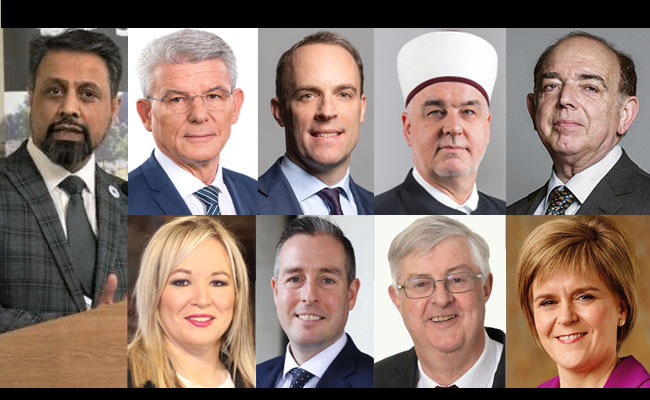London, United Kingdom—This week will see over one thousand memorial activities taking place throughout the United Kingdom in schools, town halls, police stations, prisons, universities, mosques, synagogues and churches to mark the 26th anniversary of the Srebrenica Genocide as part of an annual UK Srebrenica Memorial Week which runs from 4th July to 11th July.
The Srebrenica Genocide was the worst atrocity on European soil since the second world war in which over 8000 Muslims were systematically murdered just in the town of Srebrenica in Bosnia simply because of their Muslim identity, a close to 100,000 people killed across the whole country, over 2.2 million people displaced and, between 20,000-50,000 women raped as part of the systematic campaign of ethnic cleansing and genocide enacted by Serb forces.
The UK is the largest commemorator in the world of local Srebrenica memorial activities which are organised by the British charity Remembering Srebrenica UK through its eight English regional boards and three country boards in Scotland, Wales and Northern Ireland and 1,450 Community Champions to honour the victims and survivors of the Genocide and teach people about the dangers of hatred and the importance of building more cohesive communities for all.
Remembering Srebrenica also organises the UK National Srebrenica Memorial Day Ceremony which this year will be taking place entirely online on 8th July at 5:00 pm, allowing people across the UK to virtually come together in a collective act of remembrance.
The UK National Ceremony will be attended by President Šefik Džaferović, British Foreign Secretary Dominic Raab as well as political leaders from all corners of the United Kingdom: First Minister of Scotland Nicola Sturgeon MSP, First Minister of Wales Mark Drakeford MS, First Ministers of Northern Ireland Paul Givan MLA & Michelle O’Neill MLA, the Grand Mufti of Bosnia, Husein Kavazović and survivors of the genocide and ethnic cleansing.
Each year, Remembering Srebrenica UK selects a theme that not only reflects an aspect of the genocide that must be commemorated, but also speaks to communities in the UK. The theme for this year is ‘Rebuilding Lives’ to honour the two million people who were displaced as a result of the genocide and ethnic cleansing. The Chairman of Remembering Srebrenica, Dr Waqar Azmi OBE said:
“In albeit very different ways the Covid pandemic has brought loss and difficulties to millions, shattering individuals and communities, who are now looking to rebuild their lives. And as we move forwards to rebuilding our communities in the wake of the many health and economic challenges which people with divisive agendas are all too keen to exploit, we will remember and learn from the stories of genocide survivors who, despite the horrendous hatred and destruction they experienced, have rebuild their lives with dignity and without calling for retribution or promoting hatred or division. Their spirit is remarkable and their humanity inspiring. We will remember”.
The President of Remembering Srebrenica, Lord Bourne of Aberystwyth said: “We are proud that our country is the largest commemorator of Srebrenica memorial activities in the world which not only seek to bring people together to learn the lessons of the past in order to create stronger, more inclusive communities but also inspire future generations to take action to stand up to hatred and intolerance”.
